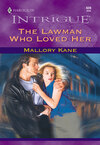Kitabı oku: «The Delancey Dynasty», sayfa 3
Chapter Three
Home. The word from the detective’s mouth penetrated like a ray of light into Rose’s clouded heart. For an instant, hope blossomed in her chest.
“Home,” she mouthed, afraid to actually put voice to the word again, lest saying it might destroy it.
Then she met Dixon Lloyd’s gaze and saw a glint of triumph lighten his dark blue eyes. He was playing on her emotions, trying to catch her off guard.
She straightened and lifted her chin. “I am home. I don’t want your help and—” she drew in a breath that caught in a sob “—and I don’t need your—protection.” She crossed her arms. “I want you to get—out!”
She dug her short fingernails into her arms and glared at him until he lowered his gaze and dropped her cell phone back into her purse. He looked at her again, started to speak, then apparently thought better of it. He walked past her out of the living room.
His footsteps echoed and faded as he descended the stairs. For a couple of seconds, there was silence. Rose stiffened and held her breath, listening, until she heard the front door open and close. She let out a careful sigh, and winced as the throbbing in her head flared again.
He’d nearly caught her off guard with his clever mention of home. But how? Why had the word affected her so?
What she’d told him was true, as far as it went. Maman’s house was her home. It had been for the past twelve years.
But before that …
Rose closed her eyes against the pulse that beat painfully in her temple. She needed to follow Detective Lloyd and make sure he’d left, then lock the door and put the chain on, but she couldn’t face the stairs. The headache was making her feel light-headed. She needed a migraine pill.
She made her way to her bedroom and swallowed a tablet without water. Turning out the light, she lay on the bed in the dark for a few minutes until the pounding in her head ebbed from horrific to nearly bearable.
Finally, shading her eyes with her hand, she forced herself to stand and make her way carefully down the stairs.
When she checked the door, she found that the detective had thrown the latch. She locked the dead bolt and put the chain on, then slowly climbed the stairs again. She made her way into the kitchen. She fumbled in the cabinet for a box of crackers and grabbed a soda from the refrigerator. She took the food into her bedroom, where she forced herself to eat the crackers and drink a few sips of soda. The chilled cola eased her stomach a bit. She lay down and tried to relax, but she wasn’t strong enough to hold the nightmare memories at bay.
Rissshhhh, rozzzzzsss. Rissshhhh, rozzzzzsss. The whispers took eerie, ghost-like form and swirled around her like banshees. Blood fell like rain, washing over her vision and bringing with it the sharp, bright glint of light on slashing metal.
She moaned and covered her head with a pillow.
A long time later, the silvery flashes faded along with the whispers, and Maman’s soothing voice slid into her dreams, soothing the pounding in her head and erasing the vision of the slashing, searing knives.
DIXON WALKED AROUND the outside of Rose’s home, assuring himself that all of her lights were out. He glanced at his watch. It was only eight-thirty. He waited a few more minutes, to be sure she hadn’t turned them out in preparation for going out. But the house remained dark and quiet.
When he’d come down the stairs, he’d expected her to be nipping at his heels, making sure he left. But she hadn’t followed. He didn’t like that she’d trusted him to leave.
However, because she hadn’t followed him, he’d had a couple of seconds to check out the official-looking form he’d noticed on the foyer table when he’d first come in. He’d scanned it quickly, with the help of the high-intensity laser light on his keychain. The form was a permit renewal for a vendor space on St. Ann Street, signed by Rose Bohème.
The name on the form was Renée Pettitpas, but the renewal date was after Maman Renée’s death. A thrill ran through him as he realized what he was looking at. He glanced back toward the stairs, then back to the form.
Judging by the diagram, the space appeared to be right in front of the praline shop. Dixon had walked by that small square of land dozens, maybe scores of times in the past twelve years. Had Rose been there every time? How had he not noticed the beautiful black-haired gypsy reading her tarot cards or holding a customer’s palm?
He was at once gratified and disappointed that he hadn’t sensed her there. Disappointed because he might have been able to close her case years earlier, but gratified that he wasn’t so in tune with Rosemary Delancey that he could have actually sensed her presence in the middle of bright, busy Jackson Square.
Now he reluctantly headed for his Dodge Charger. He felt an irritating compulsion to stay all night and watch over her. Her reaction to his questions about her attack had worried him. But when she’d threatened to call 911, he’d been forced to acknowledge that the last thing he wanted was to find himself explaining to local uniformed police why he was harassing her.
And for damn sure he didn’t want Ethan to know what he was doing. Rosemary Delancey was his partner’s first cousin, and in his family’s minds, she’d been dead for twelve years. Dixon didn’t want to give them false hope or listen to Ethan telling him how gullible he was to believe a broken-down addict looking to score a few perks in prison.
He was going to need more proof than her terror and his obsession before he turned the Delanceys’ lives upside down. He tried not to think about what he was doing to her carefully insulated life.
Glancing back at the house once more, he noticed that the faded sign was rocking slightly in the wind. Maman Renée, Vodun, Potions, Fortunes.
Rose had lived here, safely hidden away. It was arrogant to assume that now that he’d found her, she wouldn’t be safe without him.
FIFTEEN MINUTES FROM the time he drove away from Renée Pettitpas’s two-story shotgun house, Dixon was sitting on the cracked, uneven patio of the home he’d bought out of foreclosure four years ago. He’d finally decided two things at age thirty-two: he wasn’t the marrying kind, and renting was like tossing his money into the Mississippi River.
He leaned back in the teak chair and took a sip of the brandy he’d chosen instead of a beer.
He swirled the snifter, admiring its amber color in the reflection of the goldfish pool lights. Amber—the color of Rosemary Delancey’s eyes.
He’d stood in front of her less than an hour ago, and yet now, the whole experience almost seemed like a dream. He closed his eyes, trying to conjure up the vision of her at twenty-two. The girl whose image had soaked into his brain like her blood had soaked into the hardwood floor of her apartment. But that innocent, smiling girl no longer existed.
Now all he could see was midnight-black hair, shocking in contrast to her dark red brows, the ugly scar that only made her face more interesting and fascinating, the casual flowing clothes that he was sure Rosemary Delancey, debutante and Carnival Queen, had never even considered wearing.
He shifted in his chair and reached for his wallet.
“No,” he said out loud, stopping himself. He stood and picked up the jar of fish food sitting on the glass-topped table beside him.
“Here you go, Pete, Louie. Remember I told you about Rosemary Delancey?”
Louis Armstrong and Pete Fountain, his goldfish, were much more interested in the food he tossed them than his conversation.
“Come on, Louie, you remember. My first homicide. She was the Carnival Queen?” He took a sip of brandy, trying to forget about the photo in his wallet. He didn’t want to look at her twenty-two-year-old face. He was no longer obsessed with that girl anymore. That pretty debutante was dead.
“You ought to see her,” he told Louis. “She walks like she’s on a runway. Her hair is black as night, but those eyes …” He held up the glass of brandy. “See how the pool lights hit the brandy? That’s the exact color of her eyes.”
Louis gulped down the last of the food floating on the surface of the pool, turned sideways and gave Dixon a sour look, then headed for deeper water.
Pete was still swimming around, looking for one more morsel. Dixon was pretty sure Pete wouldn’t appreciate hearing about Rose Bohème’s attributes. She was already jealous of Louis. As if she could hear Dixon’s thoughts, Pete flipped her tail and disappeared beneath the philodendron leaves that floated on the pool’s surface.
He smiled wryly and finished his brandy. “Don’t be jealous, Pete. I doubt you’ll have to worry about her. You’ll probably never meet her.”
His cell phone vibrated in his pocket. His pulse jumped. Could it be Rose calling him? But when he looked at the display, he saw that it was Ethan.
He sighed and answered. “Hey, what’s up?” He really didn’t want to go out on a job this late. Not when he planned to be up before dawn tomorrow.
“Nothing,” Ethan said, and Dixon breathed a sigh of relief.
“I just wanted to double check about the time tomorrow.”
“Time?” he echoed as he turned off the pool lights and headed inside.
“Were you asleep?” Ethan asked.
“No. What about the time?”
“The Saints’s scrimmage? That you wanted to go to?” Ethan said. “Don’t tell me you forgot.”
“The—” Dixon stopped. He had forgotten. “Sorry, I can’t go,” he said. “Something’s come up.”
Ethan was quiet for a split second. “Something’s come up since this morning?” he snapped. “What the hell?”
Dixon thought fast. “It’s Dee. She needs me to—to move some stuff.” He winced. He didn’t like lying to his partner, but what was he going to tell him? I’ll be busy chasing down a lead on your dead cousin? Yeah, that would work.
“Right. Your sister is insisting that you change your plans to help her. That’s so like Dee,” Ethan said flatly. It wasn’t a question. It was a very sarcastic, disgusted statement.
“Come on, Ethan. You ought to understand family. Dee didn’t insist. She just looked so disappointed.” It was a low blow, playing the family card, but Dixon knew it would work with Ethan.
Another second of silence. “Yeah. Fine. I’ll see if Harte wants to go.”
“Why don’t you take that girl you’ve been dating?” Dixon suggested, hoping to redirect Ethan’s ire.
“Why don’t you mind your own business?”
Dixon laughed. “Uh-oh. Trouble in paradise. What’d you do? Make her get her own drink?” Ethan had been going out with the daughter of a prominent New Orleans attorney. He’d complained about her being high-maintenance.
“No. I didn’t do anything.”
“She doesn’t like football, does she?”
Ethan muttered a curse word. “If it’s not cappuccino or designer shoes, she’s not interested. Have fun moving furniture.”
“Yeah,” Dixon said, and started to hang up, then he thought of something. “Hey, Delancey,” he said. “When your cousin died, she was living in her own apartment, right?”
“Dix, really? More questions about Rosemary? That T-Bo really got under your skin, didn’t he?” Ethan sighed. “Yes, she was living in her own apartment. Why?”
“I was wondering if there was any friction between her and her parents. Was that why she left home?”
He heard Ethan sigh. “I have no idea. Anything else?”
“Nope,” Dixon said and hung up. He scrubbed a hand down his face as he set the phone on its charging station. Eventually he was going to have to tell Ethan that his cousin Rosemary was alive and living less than six blocks from where she was attacked.
Dixon headed through the kitchen to his bedroom. He needed to get to sleep. It was after ten, and 5:00 a.m. would come way too soon.
Once in bed, he tried to clear his mind so he could fall asleep, but just as he was about to drift off, the vision of the twenty-two-year-old Carnival Queen rose in his inner vision, then slowly, it morphed into the fascinatingly beautiful face of Rose Bohème.
Gone was the pretty debutante who’d haunted him for twelve years. It was Rose Bohème, the woman, who needed him now. He would be there tomorrow, in Jackson Square. And tomorrow he wouldn’t miss her. Now that he’d found her, he didn’t plan to let her out of his sight until he’d solved the mystery of her apparent return from the dead.
ROSE GOT HER table set up by six o’clock. Today she was thankful that she’d crisscrossed the tiny table’s top with ribbons to hold the tarot cards in place. The forecast only foretold a thirty-percent chance of rain, but it was already cloudy and the wind was blowing.
She’d braided her hair this morning, but a braid wasn’t going to cut it if the wind kept up, so she tucked the fat coils into a knit beret and anchored it with bobby pins.
Over the years she’d learned not to mind having her face exposed. Only a very few rude people and children asked about the scar. The children didn’t bother her. She explained to them that she’d had a bad accident many years ago.
Once she got her hair anchored, she pulled her wool knit shawl closer around her. Even in New Orleans, late-October mornings were chilly. She shivered and felt in her skirt pockets for her cold-weather gloves. She slipped them on, thankful that she’d tucked them there the previous weekend.
After her nightmarish night, she was lucky she’d made it here at all, much less remembered everything.
She rubbed her temple and pushed away the disturbing images from her dreams. Nights were bad enough since Maman had died. She was not going to let the visions and the voices intrude upon her days.
At least she’d gotten rid of that rude bully of a detective. Once she’d threatened to call 911, he’d beat feet out the door. It made her wonder if he was really a policeman at all.
An arrow of fear pierced her chest. Dear God, that must be it. He wasn’t really a detective. Sure, he’d showed her a badge, but she had no idea whether it had been real or not.
Her hands shook as she pulled the shawl closer around her. Whom had she let into her home? Whom had she allowed past the protective barrier Maman had provided so that Rose could feel safe?
Suddenly, she felt her careful control draining away. The faceless, nameless terror loomed—rissshhhh, rozzzzzsss, rissshhhh, rozzzzzsss. Only it was no longer faceless or nameless. The terror had blue-black hair and deep blue eyes. And its name was Dixon Lloyd.
“Yo, Mama. Hey?”
She jumped at the familiar voice. She blinked and realized she was staring at the tarot cards. She looked up.
It was Diggy Montgomery, a kid who danced on the street corner near her. “You okay?” He made a funny hip-hop gesture with his hands.
“I’m fine,” she said, dredging up a smile for him. “I like your hat.”
“Yeah.” He took it off and twirled it, then seated it back on his head. “I found it over on Canal. Blew off some rich dude’s head I bet. Wan’ some coffee?”
“I would love some,” she said, digging into her skirt pocket. She always gave him five dollars for a large cup of café au lait from the Café du Monde and never asked for change. His mother was a waitress there and she was pretty sure he got the coffee for nothing, but she didn’t care. He put sugar in it and brought it to her. That alone was well worth five bucks.
When he returned, he had the coffee plus a small paper bag. “Here you go, Mama. Enjoy.”
“Diggy, wait. Take another dollar,” she called, but he just executed a flawless circle, doing things with his sneaker-clad feet that she wouldn’t have believed could be done. Then he tipped the fedora, gave her a cocky grin and a mock salute, and said, “Naw, sugar. You look cold. Eat yo’ beignet. ‘S all good.”
“Thank you, sir,” she said, smiling. “Come back later and I’ll read your cards.”
He shook his head as he sashayed to his corner, tossed the hat onto the ground to collect tips and started his moves.
The tourists who were out this early were more interested in their places in line at the Café du Monde than getting their fortunes told, but Rose figured by noon, if it didn’t rain, she’d have more business than she could handle. After all, it was the week before Halloween. Between now and the first of the year was her most lucrative time.
DIXON PUT THE hood of his sweatshirt up and huddled in line, waiting for his turn to elbow his way up to the counter and get his café au lait. He wanted to sit down and have a plate of beignets, but he was anxious to find Rosemary.
Coffee in hand, he walked down St. Ann Street, sipping at the hot, sweet brew and trying to look like just another guy hanging out on Jackson Square on a Saturday.
Then he spotted her. She was dealing tarot cards, tucking each one under the ribbons that crisscrossed her table. She had on black knit gloves today—still fingerless, and she handled the cards like a shark.
Was the sight familiar? Had he seen her here before and not recognized her? He couldn’t be sure.
Watching her, he realized she wasn’t reading the cards so much as her customer. The woman was fortyish, tired-looking and obviously going against her husband’s wishes by having her cards read. She kept glancing over to where he leaned against the wrought-iron fence that enclosed the St. Louis Cathedral and the park named for Andrew Jackson, smoking a cigarette and glaring at her.
Periodically, he turned his head and yelled, “Get back over here,” at two little boys who seemed determined to feed their popcorn to a seagull.
Dixon was pretty sure even he could tell the woman’s fortune. She was in for another dozen years at least of taking care of her sons, being bullied by her husband and wishing she had more time to herself. But he doubted Rosemary was giving her such dire predictions.
Sure enough, after Rosemary pointed at several cards and talked seriously for a few minutes, the woman smiled and laid her hand on Rosemary’s arm. Rosemary blushed and smiled back, and the woman took out two bills and tucked them under the ribbons, earning her a dark look from the husband.
Dixon sat down on a bench next to a bored-looking punk with a dirty blond ponytail and drained his fast cooling coffee. He didn’t stare at Rosemary, but he kept an eye on her, not quite sure exactly what he was doing there. He only knew that it was important to him to be sure she was safe.
For the next three hours, he watched her reading cards and making people happy, judging by their reactions and the money they gave her. Apparently fortune-telling wasn’t a bad career, especially if the teller was a beautiful and mysterious gypsy.
Chapter Four
Rose had long since draped her shawl across the back of her chair and exchanged her knit gloves for the black lace ones. The afternoon sun was much warmer than the forecasted seventy degrees.
She smiled and thanked the girl who slipped a twenty beneath the dark green ribbons on her little table. It had been easy to read the girl’s cards. She wore a small diamond on her left ring finger and her fiancé stood right beside her drinking an energy drink. The cards had reflected what Rose saw in their faces. They were in love and oblivious to the practicalities of marriage.
As the couple walked down St. Ann, looking at the artwork hanging on the fence that bordered Jackson Square, Rose unpinned the beret and let her braid hang free.
She looked around for Diggy, but he’d apparently taken a break or given up for the afternoon. Blotting sweat from her upper lip, she thought it would be worth that twenty she’d just earned to have him bring her a cold drink.
A shadow blocked the sun and fell across her face. She looked up. It was Dixon Lloyd. The detective—or not.
She gathered up her cards and began shuffling them, ignoring him until he set a cold bottle of water down on her table. It was covered in condensation, chilled drops sliding down the frosty plastic to pool on the table and soak into the dark green ribbons. Rosemary licked her lips.
“Go ahead,” he said. “I got it for you.”
She wanted to push the proffered bottle away, but her thirst won out over her indignation and yes, even her fear.
“Thank you,” she muttered ungratefully as she picked it up and twisted off the top. She drank nearly a third of it, stopping only when the cold threatened to give her a brain freeze.
“You’re welcome,” he replied, sitting down on the flimsy folding chair opposite her.
She set down the bottle and looked at him. “Are you stalking me?” she asked, proud of herself for her control after last night.
He shrugged. “One person’s stalker is another’s protector,” he said evenly.
Rosemary’s pulse raced at his words. “Protector?” she repeated drily, determined not to be afraid of him today. It was daylight and they were surrounded by people. Strangers … But surely if she needed help, at least one of them would come to her rescue. “I don’t think so. I think you’re trying to scare me. Well, it won’t work.”
“Tell my fortune,” he said, smiling at her.
She had to make a conscious effort to not let her mouth drop open. His smile stunned her. Without it, his dark blue eyes were unreadable. His face was a mask, with sardonically arched brows and a wide mouth that could curve ironically.
But his smile turned his navy eyes into warm blue pools, and his mouth from stern to boyish. She noticed that his nose was straight and short, adding to the boyishness of his face. Along with the smile, it instantly removed at least five years from her estimate of his age.
She frowned at him, feeling the skin stretch along her forehead and cheek. Her hand moved to brush the scar, but she stopped it. “All right,” she said reluctantly. “I’ll read your cards, but I have to warn you, I don’t guarantee happy endings.”
His smile stretched wider. “I’ll take my chances.”
She’d already studied and cataloged him last night, using the tools Maman had taught her. Now she thought about the kind of man she’d judged him to be, and decided that for him, happy little hints of the future wouldn’t do. Whether he would admit it or not, his challenge to her was to tell him exactly what she saw inside him. And that she would do.
She dealt the cards, surprised when the Fool turned up in position zero. Something Maman had said not long before she died echoed in her head.
Keep your heart open, ‘tite. When I’m gone, your safety will lie in the hands of the Fool.
He pointed at the Fool card without touching it. “That’s significant, isn’t it?”
Rose swallowed and rested the heels of her hands on the edge of the table. “Would you like to read your own fortune?” she asked drily.
He shook his head and waited, but his eyes twinkled. Twinkled!
“Every card is significant,” she said, starting her usual spiel. “Where they are is as important as what they are. The Fool in position zero indicates that—” she took a breath, wishing she could stop herself “—that you don’t have to search any longer. You already have everything you need. You’re standing on the threshold of a new life. All you have to do is make use of what you already know. But beware. If you become distracted from your primary goal, you’ll fail and lose everything.”
She felt his dark gaze on her the whole time she talked, but she couldn’t tear her eyes away from the Fool card. She’d wanted to skew his fortune—tell him that he should give up his current obsession, but that wasn’t in the cards, and she wasn’t able to make herself say anything but exactly what the cards foretold.
She started to gather them up, but he stopped her with his hand. She looked up at him, startled.
“My primary goal—what is it?” He angled his head, indicating the cards.
Rose looked at his large, warm hand on top of hers. Its heat sent warmth flowing through the lace into her skin, up her arm and through her entire body. Warmth and promise. One person’s stalker is another’s protector.
No. If he was the Fool, she’d take her chances on her own. She jerked her arm away. “I can’t tell you that. If you don’t know—”
He nodded slowly, still holding her gaze. “I know.” He took a long breath. “It’s you.”
Rose recoiled, aghast. “Stop this. I shouldn’t have …” She picked up her cards, stacked them quickly and shoved them into her large tote. “I have to go.”
He stood. “I’ll take you home.” He collapsed the folding chair he’d been sitting in and reached for its bag.
“No! No, you won’t!” She scrambled up, knocking her table over. She reached for it, but he beat her to it. He scooped it up and folded it.
“Give it to me,” she demanded. She took a fortifying breath. “I told you, I’ll call the police if you don’t leave me alone.”
“And I told you, I am the police.”
“I don’t believe you.”
He spread his hands. “You saw my badge. If you don’t believe me, then call them.” His gaze bore into hers. He was daring her, and she could tell by the look in his eyes that he’d thought about it and decided that she didn’t have the nerve.
Damn him, he was right. If she called the police, she’d have to explain why the she didn’t have a driver’s license or a checking account, and why not only the permit on Jackson Square, but also the house she lived in were in Maman Renée’s name. She’d have to explain why there was no birth or tax record anywhere for Rose Bohème.
He studied her for a few seconds, then handed over her tiny table. “I’m not your enemy, Rose. I’m trying to help you.”
“Well, you’re doing a really bad job of it,” she cried, “because I was fine—I was safe and—and happy until you showed up. I don’t want or need your help. If you don’t leave me alone I swear I’ll scream.”
Dixon held up his hands and backed away. He walked back to the bench where he’d sat all morning, but it was full, so he stood with his hands in his sweatshirt pockets, watching her.
She quickly gathered up her table and chairs, threw their straps over her shoulders and headed toward Decatur Street. She’d catch the Prytania streetcar at Canal Place.
DIXON WATCHED ROSE rushing away from him. He wanted to kick himself. Why had he asked her to read his fortune? Why had he made those cryptic, suggestive remarks? He’d gotten caught up in her gypsy charm and forgotten his goal for a moment. But from the instant he’d first spotted her on Prytania Street, the sight of her had made him reckless.
He wanted to push her, to force her to acknowledge him, and by acknowledging him, to admit that she needed him.
By the time she’d reached Decatur and was about to turn toward Canal, Dixon noticed the man walking behind her. He recognized the filthy blond ponytail and the bedraggled hoodie with a peeling faded fleur-de-lis on the back. It was the punk who’d been sitting on the other end of his bench this morning.
The truth hit him like a physical blow to his solar plexus. Ponytail had been there for the same reason as Dixon. He was watching Rose, following her.
Dixon began walking briskly toward the creep, staying about half a block behind him. Sure enough, Ponytail didn’t hesitate when Rose turned the corner. He stayed half a block behind her.
He might just happen to live in the same direction as she did, but Dixon didn’t buy that theory for one instant. He dogged the man’s heels, staying far enough back not to be noticed, until Rosemary boarded the streetcar.
Dixon was about a hundred feet behind Ponytail when the skinny punk grabbed onto the rail and swung himself up onto the car’s steps just as it pulled away. He turned his head to look at Dixon, flipping his ponytail. Then he grinned.
Dixon had screwed up. He’d figured it out about two seconds before the grungy ponytailed piece of riffraff had grinned at him. He’d known Dixon was behind him. That’s why he’d waited until the streetcar took off to jump aboard. The question was, had Ponytail just noticed him behind him, or had he known about Dixon all along, even while they were sitting together on the bench?
Dixon felt sick. Was the punk following her because Dixon had led him to her? In trying to protect her, Dixon may have brought the danger right to her doorstep.
He sprinted back to the parking lot where he’d left his car, cursing softly as he dodged pedestrians and other vehicles.
Three minutes later, he was in one mother of a traffic jam.
“Son of a …” Dixon muttered, craning his neck in a vain effort to see past the car in front of him. What the hell was the holdup? He’d been in bumper-to-bumper traffic ever since he’d pulled out of the parking lot and turned onto Canal Street.
Then the answer hit his brain. The Saints game. He was stuck in football traffic.
He’d never get to Rose’s before the streetcar did. If Ponytail was following Rose to attack her, there was no way Dixon could get there in time to save her.
For the first time in his career, he wished he had a siren in his car. He took advantage of a slight break in traffic to pull over and park in front of a drugstore on Canal. It was probably less than three miles by car to Prytania Street. On foot, he could make it in about six to eight minutes, if he cut through alleys and empty lots.
By the time he reached the streetcar stop, sweating and out of breath, the car was pulling away. He looked down Prytania toward Rose’s house and saw her about a block and a half away. Ponytail was nowhere in sight.
Working to control his breathing, he took off after Rose at a brisk walk. Even burdened down with her huge tote and her chair and table carriers slung over her shoulder, she still walked as though she’d just been crowned Miss America.
He quickly closed the distance between them by a half block, but she was almost at her house. He didn’t take his eyes off her for an instant. His breathing was beginning to approach normal, so he sped up, wanting to catch up with her before she disappeared inside.
Ücretsiz ön izlemeyi tamamladınız.









